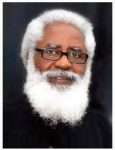

A Yoruba Initiative, (Igbimo Akorede), a non political, non religious, socio- cultural body has said it will actively engage legislators, opinion leaders, and civil society to push for urgent restructuring of the Nigerian federation, to ensue true federalism that allows regions to control resources, security, and development priorities.

This was contained in a communique from a virtual Town Hall meeting held Online on Thursday, August 28, 2025. Theme: “Is the Yoruba Nation Under Threat?”
According to a release from the communique of the virtual Town Hall meeting, presided over by the Chairman Board of Trustees, Ambassador (Dr) Yemi Farounbi stated that, the initiative is aimed at profering a lasting solution to issues bothering on insecurity, economic hardship, erosion of cultural values, and widening youth disillusionment,
Theme: “Is the Yoruba Nation Under Threat?”
” The objective was to examine the threats confronting the Yoruba nation, interrogate their sources, and chart practical pathways towards unity, security, and progress.
The meeting drew wide participation from traditional rulers, academics, technocrats, political leaders, and security experts.
Lead presentation was delivered by Dr. Akin Fapohunda, a respected scholar and policy analyst. Discussants included Prof. Femi Olufunmilade (academic and public affairs analyst of Igbinedion University), Prince Adewale Adebayo (lawyer, politician, and 2023 presidential candidate of the Social Democratic Party), Dr. Modupe Oluremi Albert (Lead City University, Ibadan), Col. Dare Abayomi (rtd.) (lawyer and security analyst), and Mr. Fatai Owoseni (retired Commissioner of Police and security consultant).
The meeting deliberated extensively on the theme and resolved as follows:
Key Observation: The Yoruba nation, like many ethnic nationalities worldwide, faces both internal and external threats but the seemingly existential nature of the Yoruba Nation must not be underestimated.
Major threats identified include: Security challenges (armed herdsmen, bandits, organized crime), Economic stagnation and weak governance direction, Cultural erosion, particularly the decline of Omoluabi values, Political instability, disunity, and lack of ideological leadership.
Dwindling quality of education and youth disillusionment, reflected in migration abroad, Participants noted the sharp contrast between purposeful governance during 1951–1966—largely under the leadership of Oloye Obafemi Awolowo—and the relatively uninspiring state of present political leadership.
Resolutions: Constitutional Reform, Advocacy
The Yoruba Initiative shall actively engage legislators, opinion leaders, and civil society to push for urgent restructuring of the Nigerian federation—ensuring true federalism that allows regions to control resources, security, and development priorities.
From Rhetoric to Action,
Yoruba stakeholders will establish a Strategic Action Committee tasked with turning deliberations into concrete policy proposals, public campaigns, and community mobilization efforts.
Unity Mechanism:
A Yoruba Coordination Forum will be set up to harmonize the voices of socio-cultural groups, traditional rulers, and professional associations, reducing duplication and internal rivalry.
Traditional Leadership Compact:
Traditional rulers are urged to enter into a Council of Cooperation that strengthens collective advocacy and discourages divisive rivalries.
Cultural Renewal Drive;
Immediate programmes will be launched to mainstream Yoruba language, history, and Omoluabi values into schools, media, and leadership training, beginning with political actors and youth organizations.
Youth and Economic Empowerment:
South-West governments should establish Innovation and Employment Hubs in each state, focusing on technology, agriculture, and creative industries, while linking security, education, and vocational training to job creation.
Strengthening Amotekun Corps
State governments must jointly adopt a Regional Security Framework to professionalize, adequately fund, and equip the Amotekun Corps, ensuring interoperability across state borders and accountability in operations.
The meeting reaffirmed its commitment to mobilizing all Yoruba stakeholders towards a united, secure, and progressive nation within a just and equitable Nigerian state.
Also at the meeting were Dr. Olusegun K. Ahmadu
President of The Yoruba Initiative ( TYLPI) Igbimo Akorede and
Akoni Olufemi J. Adefemiwa
General Secretary, The Yoruba Initiative ( TYLPI).
(Igbimo Akorede)





